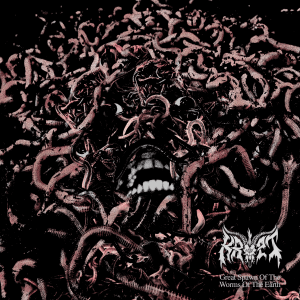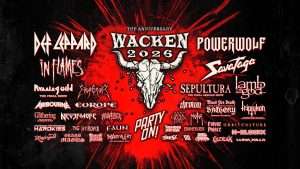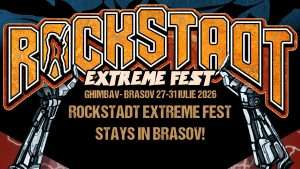Voivod: The End Of Dormancy (2020, Century Media Records)
The sky’s no limit for the Canadian quartet.
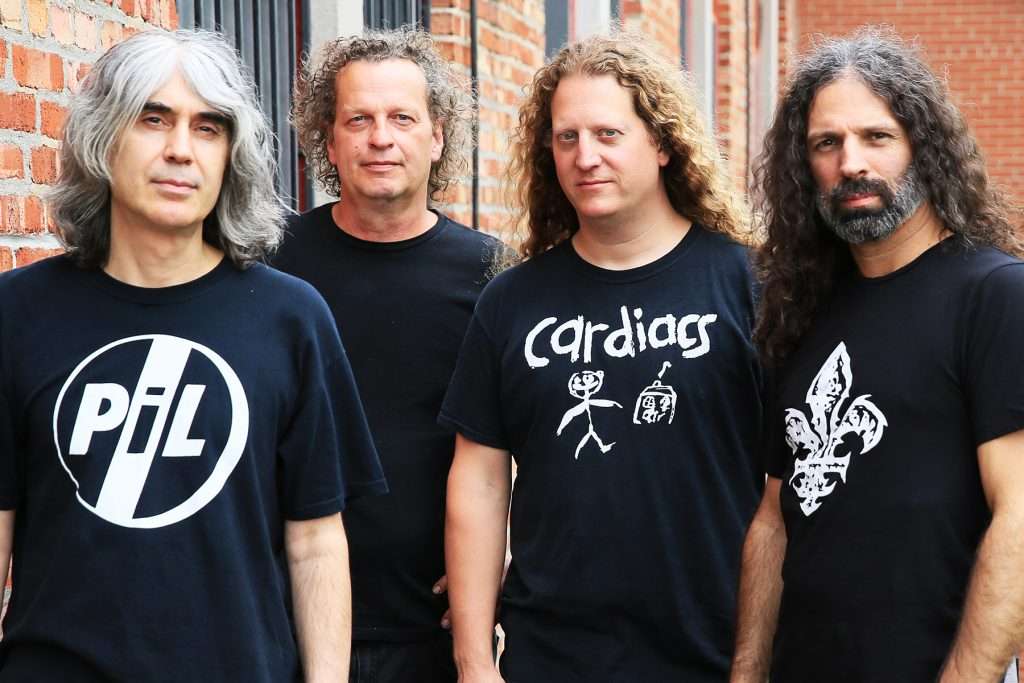
Voivod has been one of my favorite bands since the first time I heard them a long time ago, when Jason Newsted was still part of their lineup and was building a more interesting future than during his time in Metallica. The combination of genres and elements that have had a place in their music is so broad that I would not be able to list the number of influences and similarities that we can find between their music and genres as diverse as jazz, funk, psychedelic rock, thrash, pop, classical music, hard rock and countless genres that have shaped one of the most interesting bands in the history of music.
The contribution of this group to the development of current music has been such that many, many bands have tried to emulate their sound but unfortunately none of them have come close to even matching what these titans have devised throughout their more than thirty-five years. years of career. The great architect of the dystopian, post-apocalyptic and terrifying future that Voivod has captured in their career since they published their spectacular debut War And Pain (Metal Blade) in 1985 is Michel Langevin, whom many of us know by his nickname, Away. He has been in charge of shaping their covers, the band’s logos and many other illustrations that accompany each release in which we can see his sick vision of the future and the amount of dystopian realities that only a mind like Away is able to do.
The Canadian quartet inaugurated its first stage with two releases close to thrash/speed that were distilled in the middle of the golden age of the genre to approach progressive metal in 1987 with the genuine Killing Technology (1987, Noise Records) that already began to divide his audience for his departure from the kaffir metal of his previous releases. Dimension Hatröss (1988, Noise Records) continued to explore the band’s more progressive sound, moving further away from the thrash/speed roots to culminate their exploration in 1989’s sublime Nothingface (MCA Records), the turning point in the band’s career and, without a doubt, the point of no return for many of the followers who had been following their adventures since the band debuted in 1983 with that demo as anachronistic as its own title is, Anachronism (1983, Independent).
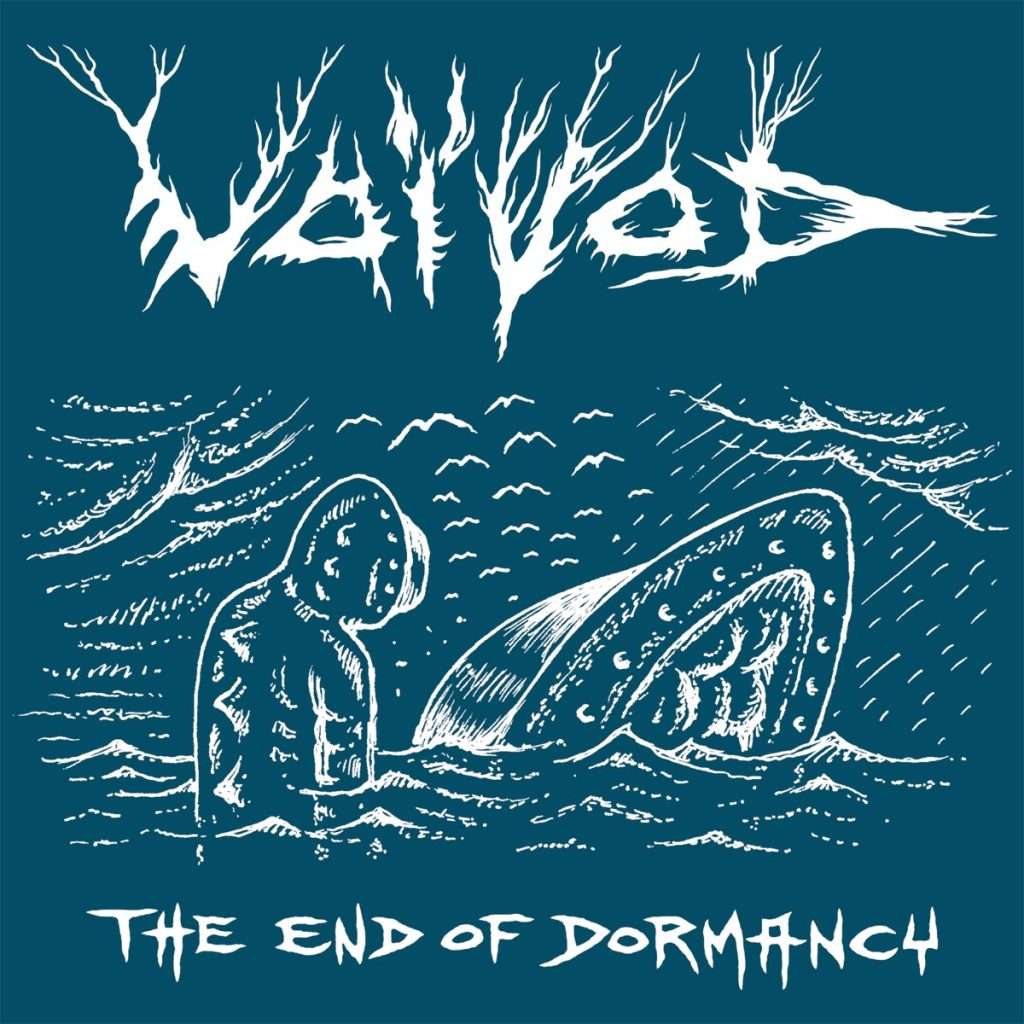
It was not my idea to review the career of the Canadian quartet in this review, but I think it is appropriate to refresh their career a little to approach this new EP in the most correct way. Voivod‘s exploration during the 90’s took them much further, leaving metal as such aside to focus on progressive rock and the combination of alternative metal on albums such as Angel Rat (MCA Records) from 1991 and my favorite from that era, The Outer Limits, from 1993. The loss of their original bassist, the always remembered Jean-Yves ‘Blacky’ Thériault led them down somewhat murky paths and the band’s sound underwent very significant changes, something which helped them further explore the unknown limits of their own music and expanded their sound without any kind of barriers.
During the nineties they returned to their most original sound with Negatron (1995, Mauseleum) and Phobos (1997, Slipdisc/Hypnotic), a stage that few value due to the lack of two of their original members, the aforementioned Blacky and his iconic vocalist, Denis ‘Snake’ Bélager, who was replaced by Eric Forrest (E-Force) as bassist and vocalist to shape the band’s only stage as a trio, not counting the formation that gave life to The Outer Limits (1993, MCA Records) where Pierrre St-Jean was hired as session bassist. The new millennium brought with it the return of Snake to their ranks and the signing of Jason Newsted on bass, a change that spawned a new stage for the quartet in which they would return to their roots with albums such as the eponymous Voivod (2003, Chophouse) or Infini (2009, Relapse Records), my favorite being the badass Katorz (Nuclear Blast) from 2006.
In 2005, Voivod suffered an irreparable loss, that of its guitarist Denis ‘Piggy’ D’Amour, who died due to colon cancer that he had been diagnosed with shortly before. No one on earth seemed capable of replacing a figure as important as Piggy in Voivod, but the gifted Daniel ‘Chewy’ Mongrain (ex-Martyr) would be in charge of returning that characteristic sound to Voivod after the death of Piggy, giving life and forms albums such as Infini (2009, Relapse Records), Target Earth (2013, Century Media Records), The Wake (2018, Century Media Records) and his excellent latest studio album to date, Synchro Anarchy (2022, Century Media Records ).
We could say that The End Of Dormancy is an experiment, but speaking of Voivod we could refer to it as just another EP. Experimenting is something the Canadian quartet is known for and referring to this release as such is generalizing too much. What’s new in this release? Not much, really. For those who don’t like Voivod very much, I recommend that you skip this work, even more so for the closed-minded who are not able to value the musical proposal offered by these visionaries.
Basically it is a re-mix of the song The End Of Dormancy from 2018’s album The Wake to which they have given a good facelift and to which they have incorporated very convincing arrangements that give depth and that are far from the original sound of the song. It’s not that they have supplanted the original music to replace it with a jazz band under the direction of Snake, but that they have combined both elements to give a more experimental and broad setting to an already very complex cut. The song in question has been extended a little more due to these arrangements and its total duration exceeds eight minutes, although at no point does it become heavy. At this point it is difficult to say that a Voivod song is heavy, only those who know what they are coming to approach these types of bands.
Anyway, in addition to the re-mix of The End Of Dormancy in a jazz-esque version, we find the live version of this same song and another of his most beloved songs, The Unknown Knows, both recorded live at the Montreal Jazz Festival. This is an extra that gives even more value to the EP, but does not offer considerable variety for those who do not fully enjoy his work to invest their money on this release.
![amorphis-presentan-nuevo-sencillo-light-and-shadow-de-nuevo-album-borderland-1849[1]](https://alliedforces.es/wp-content/uploads/2025/08/amorphis-presentan-nuevo-sencillo-light-and-shadow-de-nuevo-album-borderland-18491-300x159.jpg)
